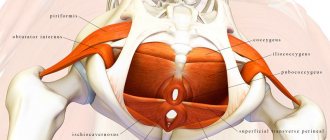The principle of “Seek First to Understand” is associated with a profound paradigm shift. We usually strive to be understood first. Most people listen not with the intention of understanding, but with the intention of responding. They either speak or are preparing to speak. They
everyone is filtered through their paradigms. They read their biographies into other people's lives.
-Oh, I know perfectly well how you feel!
—The same thing happened to me. Listen to how it happened.
These people constantly project their own vision onto the behavior of others.
Prescribe their own glasses to everyone they interact with.
If they have a problem with someone - with a son, with a daughter, with a husband or with a subordinate - the reaction is “He (she) just doesn’t want to understand me!”
One dad once complained to me:
“I don’t understand my son.” He just doesn't want to listen to me!
“Let me clarify if I understood you correctly,” I said. – You don’t understand your son because he doesn’t want to listen to you?
- Exactly right! – the father agreed.
- So, let me say one more thing... You don’t understand your son because he doesn’t want to listen to you?
-That's exactly what I said! – he answered impatiently.
“It seemed to me that in order to understand another person, you must listen to him.”
- Yes? – my interlocutor was surprised. There was a long pause. - Oh yes! – he exclaimed again, as if beginning to realize something. - Well, yes! Well, I understand him! I understand what a difficult age he is now. I went through this myself. So, if there’s one thing I don’t understand, it’s just why he still doesn’t want to listen to me!
This man actually had no idea what was really going on in his son's head. The father looked inside himself and decided that he knew the whole world, including the soul of his own son.
This is what many of us do. We are filled with a sense of our own rightness and are guided by our own life experience. We want to be understood. Our conversations with other people turn into collective monologues, and we never truly understand what is going on in the souls of these people.
When someone speaks, we typically “listen” at one of four levels. We can ignore the speaker, not listen to him at all. We can pretend to listen: “Uh-huh! Yes Yes! So-so!" We can listen selectively, picking out only certain parts of the conversation. This is how we usually listen to the endless chirping of a preschooler. We can also listen carefully, concentrating our attention, focusing on the words being spoken. But few of us ever use level five, the highest form of listening—empathic listening.
When I talk about empathic listening, I do not mean “active” or “reflective” listening techniques that involve making facial expressions or gesturing in response to what another person is saying. This style of listening is technical, detached from character and relationships, and often insults those being “listened to” in this way. In addition, this manner is fundamentally autobiographical. Using this technique, you may not transfer your biography to your relationship with another person, but the motive for listening will be autobiographical. Yes, you listen, demonstrating understanding and “reflecting” what is happening, but you listen with the intention of responding, controlling the interlocutor, manipulating him
When I talk about empathic listening, I mean listening with the intention of understanding the Self.
I mean that first you need to strive to understand, to truly understand. This is absolutely
different paradigm
Empathic (from the word empathy32) listening allows you to look at things from the position of another person, to penetrate into his system of ideas. Thanks to this, you imagine the world as another person sees it, you understand his paradigm, you understand how he feels
Empathy is not sympathy. Sympathy is a form of agreement, a form of appreciation. In some cases, this is the most appropriate emotion and response. But people often rely on sympathy, and this makes them dependent. The point of empathic listening is not that you agree with someone; its essence is that you completely, deeply understand this person - both in your mind and in your heart
Empathic listening means much more than registering, reflecting, or even understanding spoken words. Communication experts estimate that only 10 percent of information is conveyed through words; 30 percent is transmitted through intonation and 60 percent through the language of facial expressions and gestures. With empathic listening, you listen with your ears, but also - and this is much more important - you listen with your eyes and heart You listen not only to the meaning, but also to the feelings You listen to the person's behavior You use both the left and right hemispheres of the brain You feel, sense , intuitively guess
Empathic listening is powerful because it gives us accurate information to act on. Instead of imposing your biographical experiences, your judgments, thoughts, feelings, motives and interpretations, you deal with the reality that resides in the mind and heart of another person. You listen to understand. You are tuned in to perceive information coming from the depths of another person’s soul.
In addition, empathetic listening is the key to replenishing deposits in the Emotional Bank Account, because a deposit only becomes a deposit when it is perceived as such by another person. You can go out of your way to make a deposit that ends up being a withdrawal if the other person, because you don't understand what's important to them, interprets your efforts as manipulation, self-interest, or condescension.
Empathic listening in itself is a tremendous investment in the Emotional Bank Account. It has a healing, therapeutic effect, since it gives a person “psychological oxygen.”
If all the air were instantly pumped out of the room you are currently in, what would happen to your interest in reading this book? You wouldn't even think about this book! You wouldn't think about anything other than being able to take a breath of air. Your only motive in such a situation would be survival.
But now that you have enough air, this problem no longer motivates you. This is one of the greatest revelations in the field of human motivation: a satisfied need does not motivate. Only an unsatisfied need can motivate. After physical survival, the next greatest human need is psychological survival - the desire to be understood, to earn the respect of others, to occupy a worthy position, to be appreciated, to receive recognition.
By listening to another person with empathy, you give him psychological oxygen. And, having satisfied this vital need for him, you can then focus on influencing this person or solving the problem that has arisen.
This need for psychological oxygen has an impact on the human
32 Empathy - sympathy, empathy (Editor's note)
communication in all areas of life
* * *
I once gave a seminar on this topic in Chicago and recommended that the audience practice empathic listening that same evening. The next morning one of them came up to me and, barely containing his excitement, said the following:
- Let me tell you what happened last night. The whole time I've been here in Chicago, I've been trying to close one major commercial real estate deal. Yesterday I negotiated with the other party's executives and their lawyers and with another real estate agent who had an alternative offer.
It looked like the deal was slipping out of my hands. For more than six months I had been dealing only with it and, one might say, I had put everything on the line. I panicked. I did everything I could - I used every possible means, I used all my commercial skills. The last thing I could do was suggest: “Maybe we’ll wait a little longer and think about it?” But the inertia of the negotiations had gained such strength and my partners were so eager to put an end to it that a decision could have been made not in my favor.
And then I thought: “Why not try? Why not try to take advantage of what I learned today and try first to understand and then to be understood? I won’t lose anything anymore.” And I said to my partner: “Let me make sure that I understand your position and what is bothering you correctly. When you feel that I see the situation correctly, we will evaluate to what extent my proposals are suitable for you.” And I really tried to see the problem through his eyes. I tried to articulate his needs and concerns, and my partner began to open up a little.
The more I got into the essence of the problems that worried him and described the results he wanted, the more he opened up.
Finally, in the middle of our conversation, he stood up, went to the phone and dialed his wife's number. Covering the receiver with his hand, he told me: “The deal is yours!” “I was completely dumbfounded,” my listener admitted to me. “I still haven’t come to my senses yet.”
This man made a huge deposit into the Emotional Bank Account by providing his partner with psychological oxygen. When it comes to a situation like this and you have to make a choice from approximately equal options, the dynamics of human relations become more important than the technical aspects of the transaction.
To strive first to understand, and only then to be understood, to first make a diagnosis, and only then write a prescription, is not an easy matter. It is much easier to offer another person a pair of glasses that have served you faithfully for so many years.
But in the long term, this approach causes irreparable damage to both P and RS. You cannot achieve maximum results (R) in an environment of interdependence without a proper understanding of the people with whom you are dealing. And you cannot have developed interdependent PCs reflected in a large Emotional Bank Account if those you interact with do not feel that you truly understand them.
Moreover, empathic listening is risky. You have to feel very confident to immerse yourself in listening to another person, as you are opening yourself up to influence. You become vulnerable. In a sense this is a paradox, because in order to influence you must first be influenced. This means that you must really understand
This is why Habits 1, 2 and 3 are fundamental. They create an unchangeable inner core of personality - a center consisting of principles, based on which you can not be afraid to open up and be vulnerable.
FIRST – DIAGNOSIS, THEN – PRESCRIPTION
First to strive to understand, and then to be understood, first to diagnose, and then to write a prescription - this is a difficult and risky, but absolutely true principle for a wide variety of areas of life. This principle distinguishes all true professionals. This principle is obligatory for an ophthalmologist, this principle is obligatory for a therapist. You will not trust a doctor’s prescription if you are not sure of the correctness of the diagnosis.
When our daughter Jenny was only two months old, she fell ill. It was on Saturday. It was the day of a very important football match for our city, and this fact left an imprint on the behavior and psychology of every resident. 60,000 spectators gathered at the stadium. Sandra and I also wanted to go there, but we could not leave little Jenny. She had diarrhea and was throwing up. This worried us a lot.
The doctor was also at the football game. He was not our family doctor, but it was he who was on call that day. When Jenny became worse, we realized that we could not do without professional advice. Sandra called the stadium and asked for a doctor to come to the phone. Just at this time, the decisive moment in the game came, and the voice on the phone sounded strained.
-Yes! – the doctor said abruptly. - I'm listening to.
-Doctor, this is Mrs. Covey, we are concerned about the condition of our daughter Jenny!
-What's happened? - asked the doctor. Sandra described the symptoms to him, and he said:
-Clear! I'll make an appointment over the phone. Which pharmacy do you buy your medications from?
After hanging up, Sandra realized that in her haste she had not said everything she needed to say, although she had mostly described the situation correctly.
-Do you think he understands that Jenny is a newborn? – I asked.
-I'm sure! – Sandra answered.
-But he’s not our doctor! He never treated her.
- No, I’m almost sure that he understood everything correctly!
-And you will give her medicine without being absolutely sure that the doctor knows her age?
Sandra fell silent.
-What to do now? – after a pause she said.
-Call him again! - I said.
-You better call him! – Sandra asked. And I called The doctor was pulled away from the game again.
“Doctor,” I began, “when you called the pharmacy, did you mean that Jenny is only two months old?”
-No! – he exclaimed – I didn’t know that! It's so good that you called me back
I'll change the recipe immediately!
If you are not sure of the diagnosis, you will not be sure of the treatment prescribed.
The same principle applies to trading. An effective salesperson first seeks to understand the client's needs, concerns, and situation. A non-professional seller simply sells goods; the professional sells solutions to problems and satisfies needs. This is a completely different approach. A professional learns to diagnose, learns to understand. In addition, he learns to connect people's needs with his goods and services. And he must have the integrity of character to say: “My product or my services do not meet yours.”
requirements!”, if this is actually the case. In the field of law, it is also extremely important to first make a diagnosis and only then make a prescription. A professional lawyer first collects facts to understand the situation, tries to comprehend the laws and precedents, and only then prepares an argument. A good lawyer first identifies his opponent's possible arguments and then develops his own.
This is also true in the development of new types of products. Can you imagine that some of the employees would, in other words, forget about studying the psychology and motives of buyers and simply create new types of products. This approach will never work.
A good engineer must understand the distribution of forces and calculate the loads before designing a bridge. A good teacher must assess the level of preparation of his students before starting classes. A good student must master knowledge before applying it. Good parents need to figure things out before they judge or evaluate. The key to full judgment is understanding. By making a judgment first, you will never achieve complete understanding.
“Seek first to understand” is a true principle that applies to all situations in life. But this universal principle manifests itself most powerfully in the sphere of interpersonal relationships.
Material taken from: The Seven Habits of Highly Effective People Return to the Character Ethic - Stephen R. Covey
(Visited 40 times, 1 visits today)











